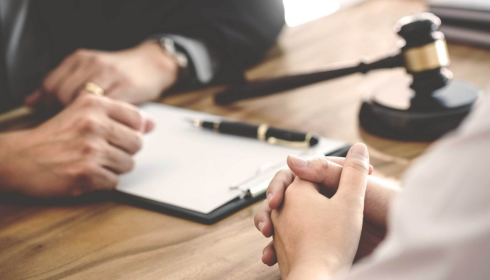The Subtle Art of Choosing the Right Expert Witness for Your Case

There’s a moment in almost every legal battle where the weight of proof feels heavier than words alone can carry. Facts matter, of course, but the way those facts are interpreted, explained, and presented to a judge or jury can change the trajectory of a case. That’s where expert witnesses step in — not just as professional voices, but as anchors of credibility. Still, choosing the right one isn’t as straightforward as flipping through a directory. It’s more like searching for a bridge between hard data and human understanding.
Why Expert Witnesses Are More Than Just Specialists
An expert witness isn’t simply someone with a degree or years of experience. They’re storytellers in their own field, translating technical language into something that resonates in a courtroom. A surgeon, for example, doesn’t just rattle off medical jargon; they explain how a specific injury could or couldn’t have happened in plain, steady terms. A financial analyst doesn’t drown a jury in spreadsheets; they highlight the patterns that reveal mismanagement or fraud.
The best agencies understand this subtle balance. They don’t just send you a résumé; they connect you with someone who can carry the weight of knowledge without making it feel inaccessible. That’s why law firms often turn to a top-rated expert witness agency, because credibility and clarity are non-negotiable when the stakes are this high.
The Hidden Traits That Make an Expert Witness Effective
On paper, it might seem simple: find someone with impressive credentials and put them on the stand. But in practice, the courtroom is more unpredictable than that. Expert witnesses need a mix of qualities you can’t always measure by diplomas alone.
Confidence matters, but not arrogance. A witness who sounds too rehearsed can come across as detached or biased. On the other hand, someone who appears unsure can weaken your entire argument. Then there’s communication style — the ability to break down knotty details into language that jurors from all walks of life can understand.
And let’s not forget composure under cross-examination. Opposing counsel will try every trick in the book to rattle them. The most reliable witnesses are those who stay steady, even when pressed with rapid-fire questions designed to trip them up. These soft skills are often the difference between testimony that sways the room and testimony that falls flat.
When to Bring in a Certified Professional
Timing is another underrated element. Some attorneys wait until the last minute to involve an expert, thinking they only need them for testimony. But a seasoned professional can shape your case long before the trial begins. They can review discovery materials, identify weak spots in arguments, and even help frame questions during depositions.
In fact, many firms find it critical to hire a certified expert witness early in the process. Certification doesn’t just signal qualification; it’s also a mark of professional accountability. It tells the court this isn’t just someone who claims expertise — it’s someone who has met recognized standards in their field.
The Realities of Cost vs. Value
It’s no secret: expert witnesses don’t come cheap. Their fees can make even established firms flinch. But here’s the thing — cost should never be the deciding factor. A misstep in testimony, a shaky explanation, or a witness who fails to connect with the jury can cost far more in lost verdicts than any hourly rate.
Think of it less like an expense and more like an investment. An effective witness isn’t just supporting your narrative; they’re strengthening the very foundation of your argument. And in the long run, that level of influence can’t be measured purely in dollars.
How to Actually Start the Search
If you’ve never gone down this road before, the process can feel overwhelming. There are countless professionals in every niche — medical, engineering, financial, psychological, and beyond. So how do you begin?
The answer often lies in asking better questions, not just running quick searches. What kind of case are you building? What kind of audience — jury or judge — will hear it? What’s the balance between technical detail and layman’s explanation you’ll need? These answers shape the profile of the person you’re looking for.
Agencies, directories, and referrals from colleagues can all be helpful starting points. But take the time to interview potential candidates. Ask them to explain something complicated from their field in everyday language. Pay attention not just to what they say, but how they say it. The ability to connect in that moment will likely reflect how they’ll connect in court. That’s the practical side of how to find an expert witness for a case without relying on chance or guesswork.
The Human Element That Often Gets Overlooked
At the end of the day, expert witnesses are humans, not just hired voices. Their reputation, mannerisms, and even subtle cues like body language matter in a courtroom setting. Judges and juries pick up on these things instinctively.
That’s why working with the right match can make the difference between testimony that lands and testimony that leaves doubts. You’re not just hiring knowledge; you’re hiring trust. And in a courtroom, trust is the invisible thread that holds arguments together.
Final Thoughts
Choosing an expert witness isn’t about ticking boxes on a checklist. It’s about recognizing the delicate interplay of expertise, communication, and credibility. Yes, you want someone who knows their field inside out. But you also need someone who can humanize that knowledge, stand firm under pressure, and translate it into something real for the people who matter most — the decision-makers.
So, the next time you find yourself preparing for a complex case, remember that the expert you bring on board is more than a supporting role. They’re a cornerstone of your story. And finding the right one could be the quiet difference between winning and losing.

